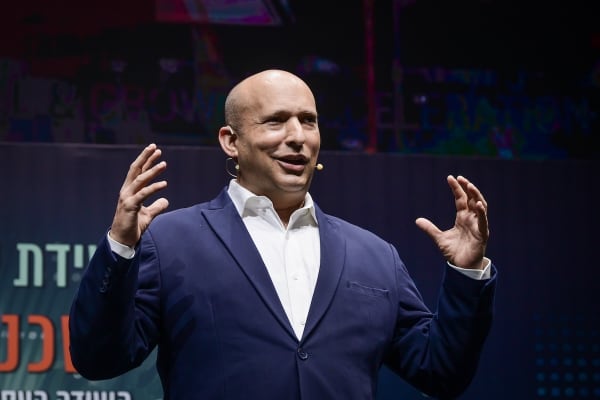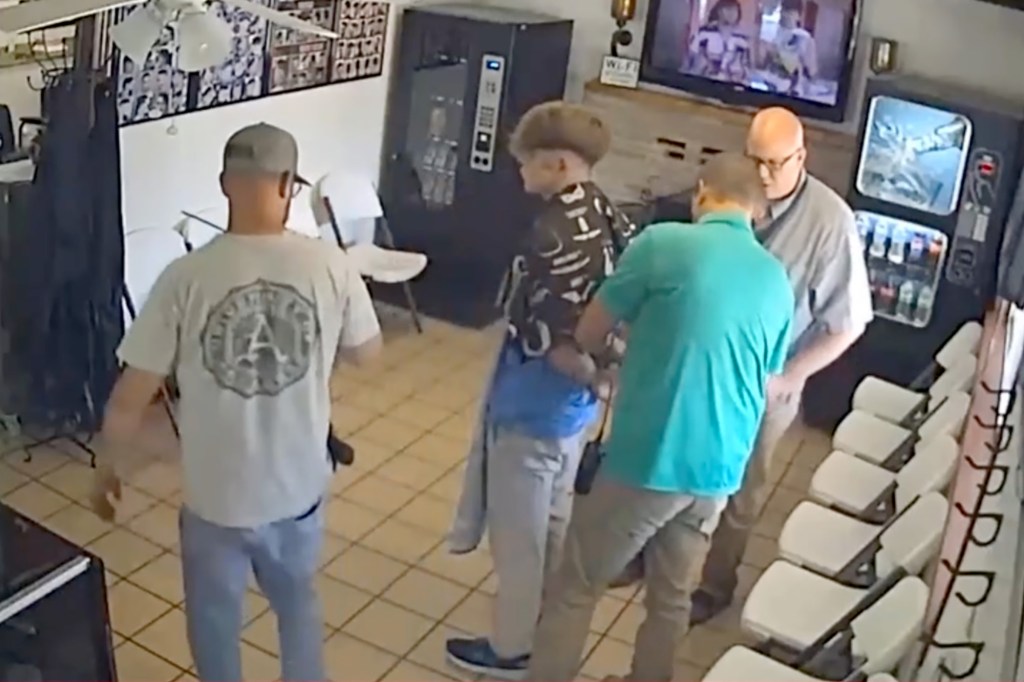Charlotte Korchak (L) in an argument with a stranger over the Israeli flag while visiting Auschwitz-Birkenau (Photo: Screenshot)
Charlotte Korchak, founder of the U.S.-based Jerusalem Education Institute, had taken a group of high school students from Miami to Poland, visiting Auschwitz-Birkenau for the first time. While standing by the train tracks that had been used to transport millions to the death camps, as the group took pictures with the Israeli flag, Korchak was verbally attacked by a stranger who was incensed by the sight of the Magen David.
In a video of the incident posted on Instagram, a woman is seen angrily asking the educator if she was “ashamed of herself,” for holding the flag. She shouted at Korchak, “You are killing children,” and said her Gazan friends had been “forced to leave their homes because of you.”
Korchak, who has lived in Israel, wasted no time pushing back on the comments, saying that she had also lost personal friends in the Hamas attack on Oct. 7, at the Nova festival massacre and also in suicide bombings during the Second Intifada.
According to the Ministry of Defense , 5,229 Jewish men, women and children have been killed in terrorist attacks in Israel and thousands of terror attacks have been carried out over the years. However, the number is a fraction of the six million killed in the Holocaust when Jewish people had no means of protecting themselves.
“You’re not doing this in front of a bunch of Jews outside Auschwitz. Walk away,” Korchak told the woman, but the conflict continued to escalate. Korchak told the stranger that highlighting the Gazan death toll was comparable to focusing on the death of Germans in the Holocaust, calling the woman’s words “audacious.”
She then tried to explain that the State of Israel was necessary to prevent the Jews from being murdered ever again, promising, “I will never be ashamed to wear this flag, and I will never be ashamed of being a Jew.”
Pivoting from the high emotions of the confrontation, Korchak more gently appealed to the woman, saying, “How about, instead of attacking me, you understand that hate doesn’t help us?” She urged several times, “Hate doesn’t help.”
Reflecting on the incident, Korchak acknowledged that the woman is most likely convinced that she’s not being antisemitic but anti-Zionist, saying, “Even the people visiting Auschwitz have not learned the lesson.”





